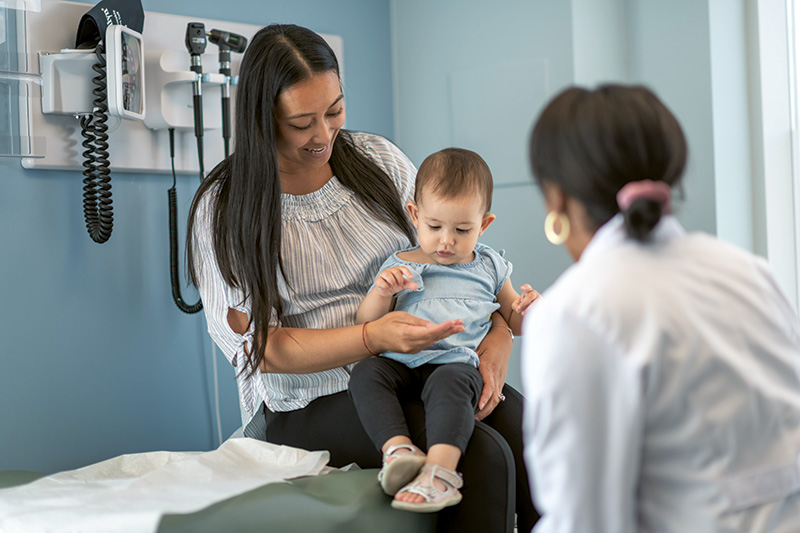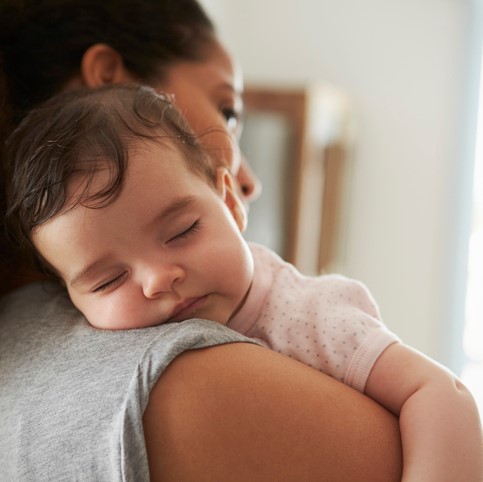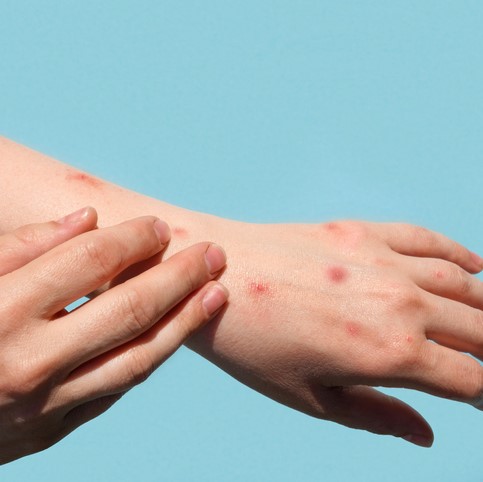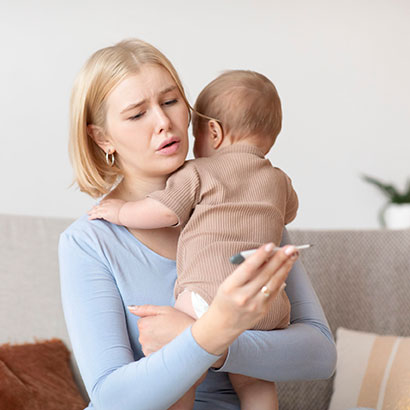Vaccine-Preventable Diseases

The best way to keep your child protected from these serious and potentially life-threatening diseases is by immunising on time, every time.
CHICKENPOX (VARICELLA)
Chickenpox is a highly contagious infection caused by the varicella-zoster virus. The main symptom is a red, blistered rash that can be extremely itchy. Chickenpox can lead to serious complications including skin infections, inflammation of the brain, pneumonia, blood infections, and shingles later in life. The best way to prevent your child from contracting chickenpox is by having them immunised with the varicella vaccine that is free to receive on the National Immunisation Schedule at 15 months old.
DIPHTHERIA
Diphtheria is a rare but serious infectious disease caused by bacteria that usually infects the throat but can also cause skin infections. The bacteria that causes diphtheria can produce dangerous toxins leading to severe and potentially life-threatening complications including nerve paralysis and heart failure. The best way to prevent your child from contracting this disease is by having them immunised with the three vaccine doses for diphtheria that are free to receive on the National Immunisation Schedule at six weeks, three months and five months old. Two further doses are also given at four years and 11 or 12 years old.
HAEMOPHILUS INFLUENZAE TYPE B (HIB)
Hib disease is caused by a type of bacteria that can lead to a range of mild to severe illnesses that may be life-threatening. Most commonly, Hib causes meningitis (infection of the membranes of the brain and spinal cord) and epiglottitis (infection and severe swelling of the throat). The best way to prevent your child from developing Hib disease is by having them immunised with the vaccine doses for Hib that are free to receive on the National Immunisation Schedule at six weeks, three months, five months, and 15 months old.
HEPATITIS B
Hepatitis B is a disease caused by a virus that attacks the liver. It is spread through blood and other bodily fluids. Long term complications can include liver failure or liver cancer. The best way to prevent your child from contracting this disease is by having them immunised with the three vaccine doses for hepatitis B that are free to receive on the National Immunisation Schedule at six weeks, three months and five months old. They aren’t protected until they’ve had all three doses.
HUMAN PAPILLOMAVIRUS (HPV)
HPV is a group of common viruses that are highly contagious and can cause infections leading to genital warts, and oral and genital cancers in men and women. In general, people with HPV infection have no symptoms, except as genital warts. The best way to prevent your child from contracting HPV is by having them immunised with the two vaccine doses that are free to receive on the National Immunisation Schedule at 11 or 12 years old.
MEASLES
Measles is an extremely contagious disease caused by a virus, and is often characterised with a blotchy rash among other symptoms. Measles can be life-threatening, with about one in 10 people with the disease needing hospital treatment. The best way to prevent your child from contracting measles is by having them immunised with two doses of the MMR (measles, mumps and rubella) vaccine that is free to receive on the National Immunisation Schedule at 12 months and 15 months old.
MUMPS
Mumps is a disease caused by a virus that can lead to swelling in the glands around the face. Most people experience mild symptoms but it can cause serious complications such as deafness, swollen testicles, and meningitis. There is no specific treatment for mumps; the best method of prevention is immunisation. The best way to prevent your child from contracting mumps is by having them immunised with two doses of the MMR (measles, mumps and rubella) vaccine that is free to receive on the National Immunisation Schedule at 12 months and 15 months old.
PNEUMOCOCCAL DISEASE
Pneumococcal disease is a potentially life-threatening infection caused by bacteria that can lead to meningitis (infection of the membranes of the brain and spinal cord), septicaemia or blood poisoning, or infection at other sites of the body such as the heart muscle, joints and abdomen. The best way to prevent your child from contracting pneumococcal disease is by having them immunised with the three vaccine doses that are free to receive on the National Immunisation Schedule at six weeks, five months and 12 months old.
POLIO (POLIOMYELITIS)
Polio is a highly contagious disease caused by the poliovirus and can lead to irreversible paralysis. There is no cure for poliomyelitis; the best method of prevention is immunisation. The best way to prevent your child from contracting this disease is by having them immunised with the three vaccine doses for polio that are free to receive on the National Immunisation Schedule at six weeks, three months and five months old. A booster dose is also given at four years old.
ROTAVIRUS
Rotavirus is a highly contagious viral infection that causes gastroenteritis (vomiting and diarrhoea) and fever, and can lead to severe dehydration that may be fatal if left untreated. Many children with rotavirus will require hospitalisation. The best way to prevent your child from contracting this disease is by having them immunised with the two oral vaccine doses for rotavirus that are free to receive on the National Immunisation Schedule at six weeks and three months old.
RUBELLA
Rubella, also known as German measles, is a rare disease caused by a virus. It usually leads to mild infection but can be serious if contracted by a woman who is pregnant. There is no specific treatment for rubella; the best method of prevention is immunisation. The best way to prevent your child from contracting rubella is by having them immunised with two doses of the MMR (measles, mumps and rubella) vaccine that is free to receive on the National Immunisation Schedule at 12 months and 15 months old.
TETANUS
Tetanus is a rare but serious bacterial infection that enters the body through wounds such as cuts, grazes and puncture-type wounds. The bacteria can produce a toxin that leads to muscle weakness, stiffness, cramps and difficulty in chewing and swallowing food (lockjaw). In severe cases it can be fatal. The best way to prevent your child from contracting this disease is by having them immunised with the three vaccine doses for tetanus that are free to receive on the National Immunisation Schedule at six weeks, three months and five months old. Two further doses are also given at four years and 11 or 12 years old.
WHOOPING COUGH (PERTUSSIS)
Whooping cough is a highly infectious respiratory disease caused by a type of bacteria. It can lead to a severe and persistent cough and in some cases can be life-threatening. Whooping cough can be serious for babies and children especially. The best way to prevent your child from contracting this disease is by having them immunised with the three vaccine doses for pertussis that are free to receive on the National Immunisation Schedule at six weeks, three months and five months old. Two further doses are also given at four years and 11 or 12 years old. To protect your baby before they are old enough to receive their own immunisations, it is highly recommended to immunise against whooping cough during pregnancy.



